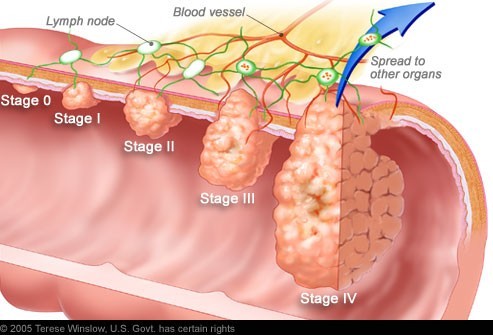“In regard to cancer, magnesium (mag) intake has been associated with the incidence of some cancers and has been studied as a protective agent against chemotherapy-induced nephrotoxicity and neurotoxicity…”
According to the research linked below, magnesium has been shown to reduce the risk of colorectal cancer.
As a cancer survivor and cancer coach my mantra is “I wish I knew then what I know now.” I wish I had pre-habilitated before my chemo, supplemented during my chemo and then undergone lifestyle therapies after my chemotherapies and radiation.
It has become clear to me that conventional cancer therapies such as surgery, radiation and chemotherapy may be needed for the long-term survival of any/all newly diagnosed cancer patient. However, nutrition, supplementation and lifestyle therapies are essential to the survival of the patient. Always.
Especially if you are a colon cancer survivor. Nutrition, supplementation, lifestyle, etc. will reduce your risk of relapse.
It took me several years after my conventional therapies but I now live a cancer prevention lifestyle through nutrition, supplementation, etc. I have remained in complete remission since April of 1999.

The article linked and excerpted below cites mag as possibly preventing colorectal and pancreatic cancers as well as possibly protecting the kidneys of someone undergoing cisplatin chemotherapy.
If you have been diagnosed with either colorectal or pancreatic cancers and have undergone therapies to achieve remission from your cancer, I encourage you to consider magnesium supplementation. Not to prevent your cancer diagnosis but to prevent a cancer relapse.
I take and recommend Life Extension Neuro-mag Magnesium L-threonate Dietary Supplements for several reasons. In addition to the benefits cited in the study below, this form of magnesium has been shown to help both my heart and brain function.
Have you been diagnosed with either colorectal or pancreatic cancer? Please scroll down the page, post a question or comment and I will reply to you ASAP.
Thank you,
David Emerson
- Cancer Survivor
- Cancer Coach
- Director PeopleBeatingCancer
Recommended Reading:
“Context Animal studies have suggested that dietary magnesium may play a role in the prevention of colorectal cancer, but data in humans are lacking.
Objective To evaluate the hypothesis that a high magnesium intake reduces the risk of colorectal cancer in women…
Main Outcome Measure Incident invasive colorectal cancer.
Results During a mean of 14.8 years (911 042 person-years) of follow-up, 805 incident colorectal cancer cases were diagnosed. After adjustment for potential confounders, we observed an inverse association of magnesium intake with the risk of colorectal cancer (P for trend = .006). Compared with women in the lowest quintile of magnesium intake, the multivariate rate ratio (RR) was 0.59 (95% confidence interval [CI], 0.40-0.87) for those in the highest quintile. The inverse association was observed for both colon (RR, 0.66; 95% CI, 0.41-1.07) and rectal cancer (RR, 0.45; 95% CI, 0.22-0.89).
Conclusion This population-based prospective study suggests that a high magnesium intake may reduce the occurrence of colorectal cancer in women…”
“Mag is a critical mineral that is involved in over 600 enzymatic reactions, including those important for brain, heart, and skeletal muscle functions.1Interestingly, about 60% of Americans are deficient in mag, including up to 60% of patients who are critically ill…
In regard to cancer, mag intake has been associated with the incidence of some cancers and has been studied as a protective agent against chemotherapy-induced nephrotoxicity and neurotoxicity…
Cancer Risk-
Colorectal Cancer- Several studies have demonstrated an association between high mag intake and reduced risk of colorectal cancer (CRC)…
A study of 140,601 postmenopausal women from the Women’s Health Initiative with an mean follow-up of 13 years demonstrated a significant reduction in CRC risk with the highest quintile of total magnesium intake compared with the lowest quintile of magnesium intake…
Pancreatic Cancer–A study of 66,806 subjects aged 50 to 76 at baseline from the Vitamins and Lifestyle cohort evaluated mag intake and the incidence of pancreatic cancer during a mean follow-up of 6.8 years.6 Subjects with mag intake below the recommended dietary allowance were more likely to develop pancreatic cancer, particularly in those whose intake was less than 75% of the recommended dietary allowance…
Nephrotoxicity-
Several studies have demonstrated that mag administered during chemotherapy treatment has a protective effect against nephrotoxicity…
Conclusions- Epidemiologic studies suggest that total magnesium intake may reduce the risk of CRC and pancreatic cancer.
Several studies, including a randomized controlled trial, suggest that prehydration with magnesium or magnesium supplementation is protective against cisplatin-induced nephrotoxicity.”
APPIP ERROR: amazonproducts[
AccessDeniedAwsUsers|The Access Key Id AKIAJAJ37JVNL7OUU4CA is not enabled for accessing this version of Product Advertising API. Please migrate your credentials as referred here https://webservices.amazon.com/paapi5/documentation/migrating-your-product-advertising-api-account-from-your-aws-account.html.
]




